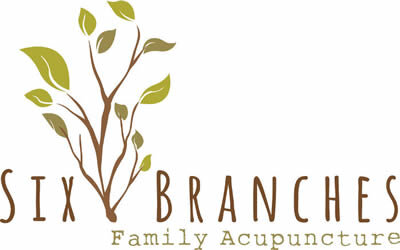In Traditional East Asian Medicine (TEAM), Autumn is associated with the Lung organ. For asthma sufferers, Fall can be a particularly difficult time, with a mix of colder weather and allergy-inducing pollen aggravating asthma symptoms. Luckily, acupuncture and TEAM herbal medicine can offer a lot of relief for asthma sufferers!
Over the last 15 years, an herbal formula known as ASHMI has been rigorously studied by researchers at the Mt. Sinai Icahn School of Medicine in New York. ASHMI, which stands for the Anti-Asthma Herbal Medicine Intervention, is a relatively simple herbal formula, containing just three Chinese herbs: Reishi (Ling Zhi), Sophora (Ku Shen), and Licorice (Gan Cao). Lead researcher Dr. Xiu-Min Li, MD, a pediatric immunologist and Chinese medicine-trained physician developed the formula, which has since been shown in Randomized Controlled Trials (RCTs) to improve lung function in those with allergic asthma.
ASHMI vs Prednisone
Asthma sufferers are very familiar with the corticosteroid drug Prednisone, a standard asthma treatment, and most asthma sufferers have had to take at least one round of Prednisone in their lifetimes. Much of the research around the herbal formula ASHMI has looked at how its use compares to Prednisone in controlling asthma symptoms.
In one 2009 randomized control trial of 91 adults with allergic asthma, half of the study participants were given ASHMI while the others were treated with Prednisone. Lung function, as measured by spirometry, serum IgE levels, and clinical symptoms, significantly improved in both groups. Interestingly, while both treatments showed significant improvement, those in the ASHMI group had a better balance of two cytokines, Th1 and Th2.
Cytokines are responsible for many functions in our immune system. Th1 cytokines excel at fighting intracellular parasites and viruses, while Th2 helps our immune system mount a response against allergens, an otherwise benign substance that the immune system has decided to tag as harmful.
Corticosteroids such as Prednisone are great at lowering levels of Th2, which rapidly reduces inflammation and halts an allergic response. This is why Prednisone is so effective in an acute asthma exacerbation. The downside is it simultaneously lowers Th1, decreasing the body’s ability to fight infections. This is why Prednisone can have immunosuppressant side effects.
In the group that received the ASHMI formula, Th2 decreased while Th1 did not. In other words, ASHMI significantly improved asthma symptoms without weakening the person’s immune system or affecting their adrenal function. Meanwhile Prednisone lowered Th1 and also had a negative impact on adrenal function.
ASHMI Ingredients
One of the ingredients in the ASHMI formula, Reishi (Ling Zhi), is an immuno-modulating herb. While the synergistic effect of all herbs in the formula are what yielded the trial results, Reishi (Ling Zhi) is thought to be responsible for the Th1-Th2 balancing effects.
Licorice (Gan Cao) is a commonly used herb in TEAM that has corticosteroid properties and, as a result, can mimic the actions of Prednisone. Sophora (Ku Shen) helps to decrease inflammation and phlegm. From a TEAM perspective, asthma is the result of latent phlegm in the lungs that gets aggravated by environmental factors, such as cold wind, pollen and molds, food allergens, stress, or viruses. Ku Shen targets the latent phlegm and subsequent inflammation. On their own these three herbs -Reishi, Licorice, and Sophora- do not independently treat asthma, but when cooked together have a synergistic effect that benefits the lungs.
While TEAM typically doesn’t take a one size fits all approach to biomedical conditions like asthma, ASHMI may be a helpful starting place for many with allergic asthma, especially the type that’s been present since childhood.
Further Herbal Research:
Since the development of ASHMI, another herbal formula focused on treating food allergies has been studied by the same research group. Originally based on a different Chinese herbal formula, the researchers similarly added a hefty dose of Reishi (Ling Zhi). Trials of this formula have mainly been studied in people with anaphylactic food allergies, but recent applications have extended to include those with autoimmune conditions. Preliminary trials showed this formula had promising results for children with Crohn’s Disease, which will hopefully be further studied in larger samples and in adults. The impacts of Th1-Th2 balancing from immuno-modulating herbs have far and wide applications, especially as autoimmune conditions are on the rise, affecting 23.5 million Americans.
References:
Kelly-Pieper, K., Patil, S. P., Busse, P., Yang, N., Sampson, H., Li, X.-M., Wisnivesky, J. P., & Kattan, M. (2009). Safety and tolerability of an antiasthma herbal Formula (ASHMI) in adult subjects with asthma: A randomized, double-blinded, placebo-controlled, dose-escalation phase I study. Journal of Alternative and Complementary Medicine (New York, N.Y.), 15(7), 735–743. PubMed. https://doi.org/10.1089/acm.2008.0543
Li, X.-M. (2011). Treatment of asthma and food allergy with herbal interventions from traditional chinese medicine. The Mount Sinai Journal of Medicine, New York, 78(5), 697–716. PubMed. https://doi.org/10.1002/msj.20294
Song, Y., Dunkin, D., Ceballos, C., Hoffstadter-Thal, K., Benkov, K., & Li, X. (2010). Anti-inflammatory Effect of the Chinese Herbal Formula-FAHF-2 on PBMCs from Children with Crohn's Disease. Journal of Allergy and Clinical Immunology, 125(2), AB205.
Wen, M.-C., Wei, C.-H., Hu, Z.-Q., Srivastava, K., Ko, J., Xi, S.-T., Mu, D.-Z., Du, J.-B., Li, G.-H., Wallenstein, S., Sampson, H., Kattan, M., & Li, X.-M. (2005). Efficacy and tolerability of antiasthma herbal medicine intervention in adult patients with moderate-severe allergic asthma. Journal of Allergy and Clinical Immunology, 116(3), 517–524. https://doi.org/10.1016/j.jaci.2005.05.029

